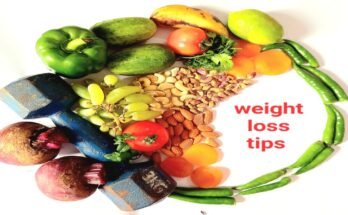The heart is the most important organ that pumps blood around the body and this blood sends oxygen and nutrients to all parts of the body and carries away unwanted carbon dioxide and waste products. A healthy heart feels greater fulfillment in life with less stress and depression.
For a healthy heart, we have to maintain some basic rules which are as follows:
1. Become physically active:
Physical activity refers to movement during leisure time, walking, running, swimming, cycling, or as part of a person’s work activity. At starting, walking or exercising for 30-45 minutes every day is good.
It is recommended that at least 180 minutes of exercise every week to reduce the risk of heart disease.
2. Limit saturated fats:
Saturated and trans fats such as butter, milk fat, meat, chicken, ice cream, cheese, etc. are bad for our health. It can cause problems with our cholesterol levels, which can increase the risk of heart disease. Replacing foods that are high in saturated fat can lower the risk of heart disease.
Intake of excess saturated or trans-fats can raise the level of LDL cholesterol in our blood. A high level of LDL cholesterol in the blood increases the risk of heart disease and stroke.
Recommended saturated fat is less than 10% of the total calories we eat and drink each day, about 200 calories for a 2,000-calorie diet.
3. Less intake of sodium:
Sodium is the most important nutrient necessary for maintaining acid-base balance, transmission of nerve impulses, and normal cell function. Our body needs a small amount of sodium, but too much sodium can be bad for our health. Eating excess salt can cause high blood pressure, which increases the risk of heart attacks and strokes.
For a healthy heart, we have to eliminate salty foods from our diet and reduce the amount of salt used in cooking. We should always choose low-sodium foods, salt-free or reduced-salt products.
Recommend keeping sodium under 2,300 milligrams (mg) per day for better results.
4. Less consuming of sugars:
Eating sugary foods, such as Candy, Cakes, Cookies, Sweet rolls, pastries, ice cream, yogurt, soft drinks, sports drinks, energy drinks, juice drinks, etc. leads to heart disease and stroke.
Recommended sugar intake is 5 to 10 teaspoons per day.
5. Eat higher amounts of plant-based foods:
Plant-based foods are a source of vitamins, minerals, and antioxidants which play a vital role in a healthy heart. A plant-based diet focuses on fruits, vegetables, grains, beans, peas, lentils, nuts, oats, quinoa, brown rice, amaranth, avocados, olive oil, flaxseed oil, green peas, chickpeas, peanuts, etc. are hearty and satisfying options.
These foods strengthen our immune system to protect us against germs and microorganisms. A healthy immune system is essential for reducing the risk of heart disease and cancer.
6. Eat more fish:
Fish are packed with unsaturated fatty acids which can lower our blood cholesterol. Instead of red meat and poultry, we can eat more fish like salmon, tuna, mackerel, cod, etc. Fish is an important source of omega-3 fatty acids and these essential nutrients keep the heart and brain healthy as well as overall well-being.
The vitamin b12 found in fish is essential for the growth of healthy red blood cells and DNA reproduction. Consuming enough vitamin B12 reduces the risk of dementia and heart disease.
Recommend eating fish at least three times per week for better results.
7. Avoid junk food:
Junk food is a food that contains a lot of calories, sugar, salt, and processed carbohydrates and is low in nutrients such as vitamins, minerals, and fiber. The excessive sugar, calories, and fats present in junk foods lead to weight gain which can cause various health problems, such as heart and lung diseases, diabetes, and stroke.
Junk foods become very salty, lack fibers, and are high in bad cholesterol which causes heart and liver disease. These foods can make you feel tired and unable to concentrate. We should avoid junk food for a healthy heart and human well-being.
8. Stop smoking:
Smoking is a major risk factor for heart and kidney disease. Individuals who smoke several times are more likely to develop a heart attack than people who do not smoke. It reduces the amount of oxygen delivered to the heart and leads to high blood pressure.
When we smoke, harmful chemicals enter our bloodstream, spread through the body and they can reach our heart within 10 seconds.
Long-term smoking causes heart disease, stroke, lung disease, and bronchitis.
9. Reduce the intake of alcohol:
Small amounts of alcohol reduce blood cholesterol to some degree, but excessive intake of alcohol is associated with many health problems, including high blood pressure, heart disease, abnormal heart rhythms, cancer, etc.
Recommended alcohol dose is more than two glasses of wine per day for men and women should only drink one glass of wine per day.
10. Reduce body weight:
Being overweight is responsible for diabetes, high blood pressure, heart disease, female health disorders, arthritis, cancer, and sleep disorders. To achieve a healthy weight we should eat healthy, increase physical activities, get enough sleep, and manage stress.
By reducing body weight we can lower the risk of heart disease and cancers.
11. Control your stress:
Stress hurts various aspects of your life. Long-term stress can lead to various health problems including anxiety, depression, heart disease, high blood pressure, sleep problems, etc.
A major risk factor for heart attack is uncontrolled stress. To reduce stress eat healthy, exercise, and give yourself a break if you feel stressed out.
When one manages his stress, experiences less frustration with life’s challenges, decreases worries about the future, and has an improved sense of well-being.
Conclusion:
A healthy heart plays a vital role in overall human well-being. At any stage of life, a healthy heart can prevent heart disease and lower our risk for a heart attack. By maintaining these rules we can reduce the risk of developing heart disease that could lead to heart attack.









